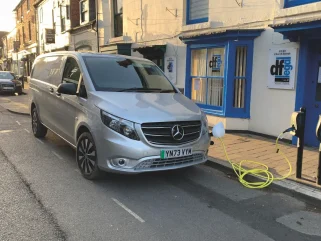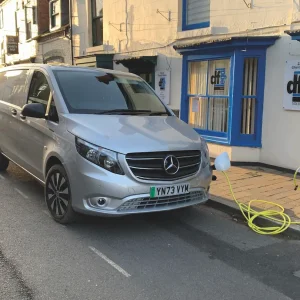
The continued sale of new diesel, petrol and hybrid LCVs until 2035 in the UK has been welcomed by the Association of Fleet Professionals (AFP).
However, the organisation warned that more electric van incentives for operators were still needed – while Peter Golding, managing director of software firm Fleetcheck, said that the government had not gone far enough.
The 2035 extension was announced by the government this week alongside new flexibilities in its ZEV mandate.
AFP chair Paul Hollick said: “While electrification of the company car parc has its difficulties – notably around very poor residual values – van electrification is proving much more problematic, with many operators finding current vehicles simply unsuitable for their needs in terms of range, payload and cost.
“The new revisions create a degree of breathing space with diesel and hybrid vans available until 2035. This looks like a more realistic timeframe that will allow ongoing development of new vehicles and a process of adaptation by fleets.
“However, there still needs to be material, effective incentives for operators to make the transition to electric vans over time, otherwise there is a possibility we are simply kicking the can down the road. The ideas included in the Zero Emission Van Plan we created with BVRLA and others last year should especially be examined.
“Overall though, it’s positive that the government has listened to the fleet and motor industries, made changes to their approach, and appear to be open to making further revisions in the future in response to changing conditions.”
Fleetcheck’s Golding said that the government would almost certainly have to make further revisions in the future to create momentum behind van electrification.
He said: “The fundamental issues that fleets tell us they are facing when it comes to electric van adoption are that the available vehicles are too expensive, don’t have adequate capacity for their needs, and lack sufficient range.
“The moves that the government has made … don’t go far enough towards tackling these core problems. In creating a situation where diesel and hybrid vans can stay on sale until 2035, they’re potentially just giving fleet operators an excuse to continue using ICE vehicles and ignore the issue for a few more years.”
Golding argued that there were only really two potential solutions to this problem – either incentives for adoption from the government or more capable vehicle designs.
He said: “We are likely to see electric vans become more suitable for fleet use over time and almost every month, we see incremental improvements to range and payloads, while prices are becoming more attainable. However, whether this is happening at a pace sufficient to overcome operator objections to these vehicles is very much open to question.
“In the company car sector, successful adoption has been powered by taxation advantages – especially zero or very low benefit in kind. There is nothing resembling the same level of assistance in the electric van market and, as a result, no real impetus for change. This is the area where the government needs to act.
“[The] revisions are all about supply but it’s arguable that the real problem lies with demand. We speak to fleet operators almost every day who are unimpressed by the prospect of electric vans to the extent that their current plan is to operate their existing diesel vans for as long as possible. More needs to be done to change this mindset.”





